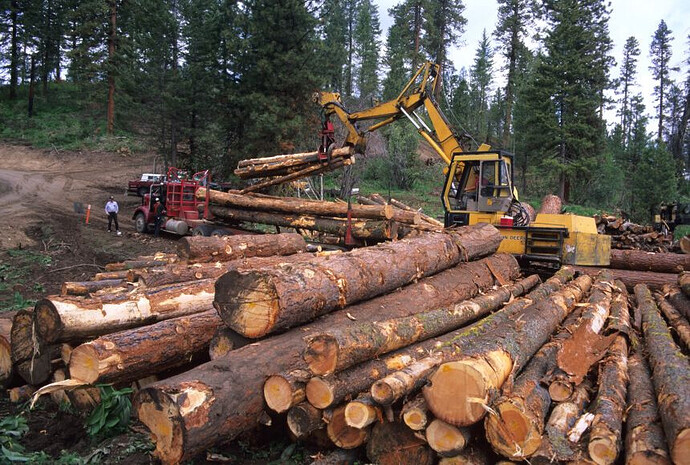Imports of the main timber and panel products in 2022 were 2.4 million m3 lower than over the same period in 2021, according to the latest TDUK statistics.
The organization also reported grounds for timber sector optimism in 2023 with improved economic forecasts for later this year.
The quantity of all imports in 2022 totaled 9.3 million m3, a decline of 20% from last year. This was driven by reductions in softwood imports, with volumes 25% lower than the record totals seen in 2021.
Despite the significant fall in volume and total value, the average cost price of softwood imports rose 7% as global demand remains strong.
Only hardwood saw growth last year, with volumes up 7% on 2021. Hardwood imports totalled 576,000m3, at a value of £433 million establishing 2022 as the best year for hardwood imports by the UK this century.
Despite volume volatility in 2021 and 2022, average timber imports have increased gradually since 2009, suggesting long-term growth.
“Demand for timber slowed last year from the dizzying heights of 2021, with high inflation and economic volatility harming consumer confidence in key sectors like retail and RM&I,” said Nick Boulton, TDUK head of technical and trade.
“Political instability in Q3 also undermined confidence in the housing market and reduced housing starts and timber demand. Supplies of timber on the ground remained healthy as the year progressed, reducing the need for further imports.
“Despite a tricky 2022, there is room for optimism, with members reporting good demand in the early months of 2023.
“The economic outlook has also improved, with the CPA predicting just a shallow recession this year and growth heading into Q3/4.
“Overall, the 2022 stats show that despite recent import volatility, timber is heading in the right direction long-term, with an upward trend seen since 2009.
